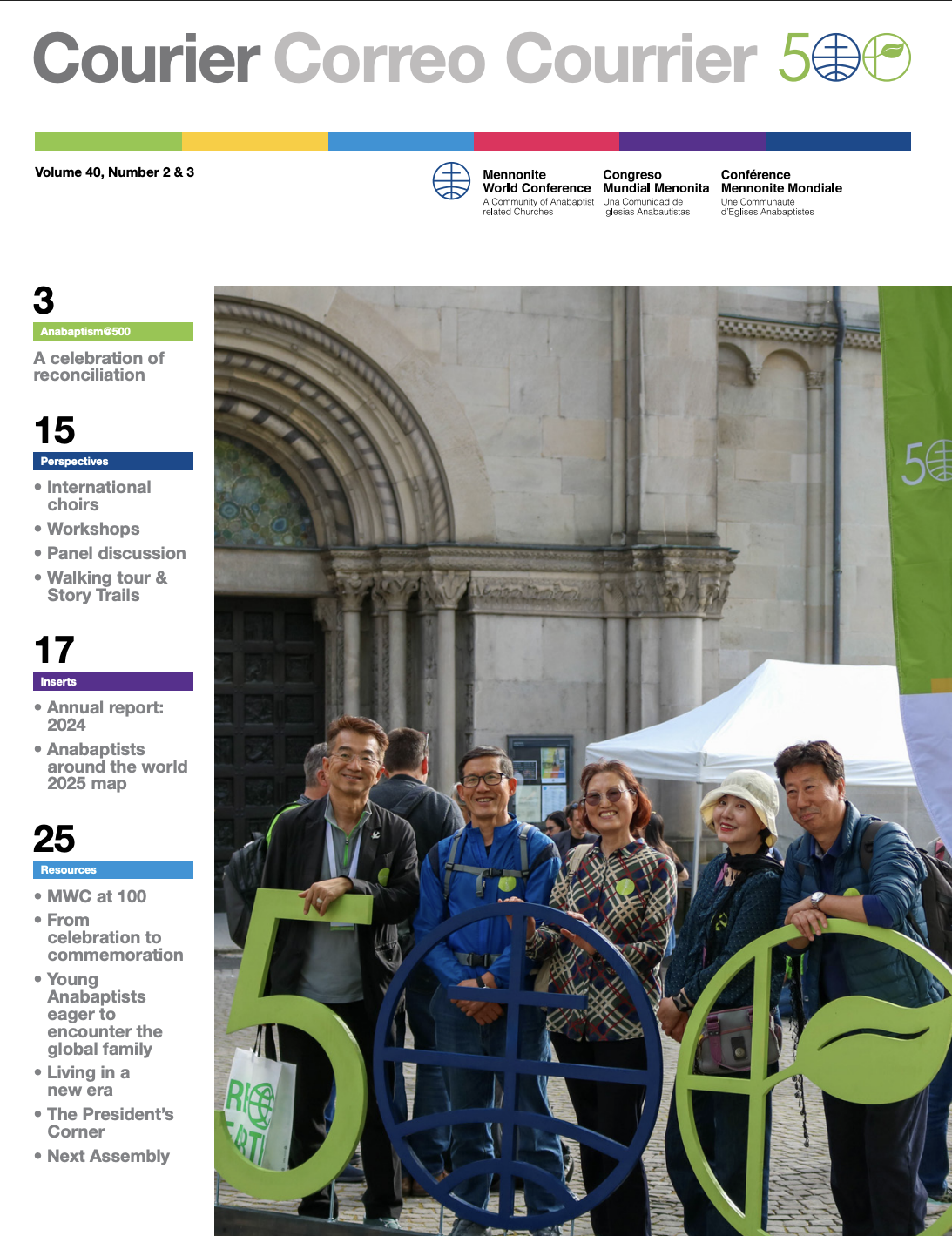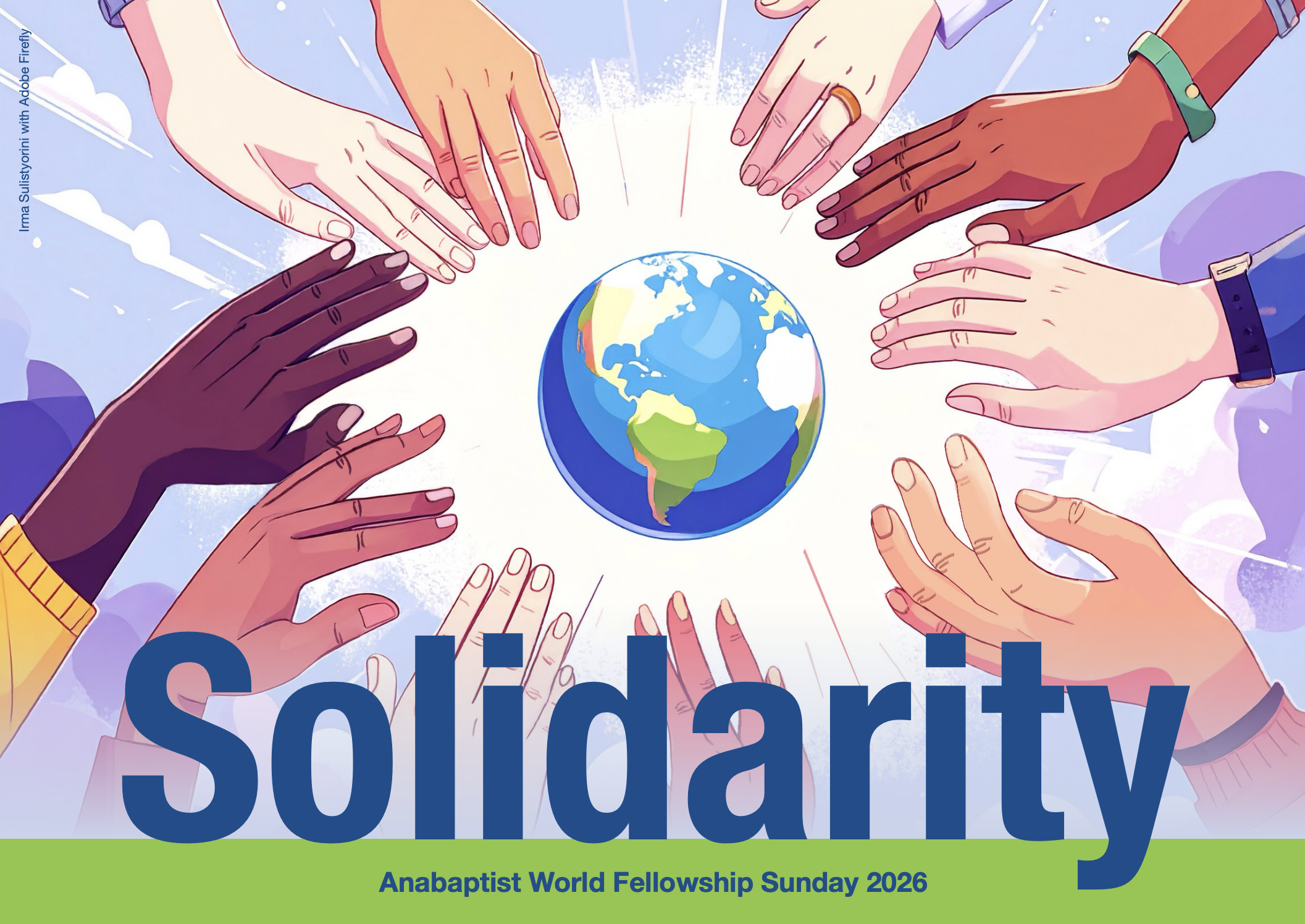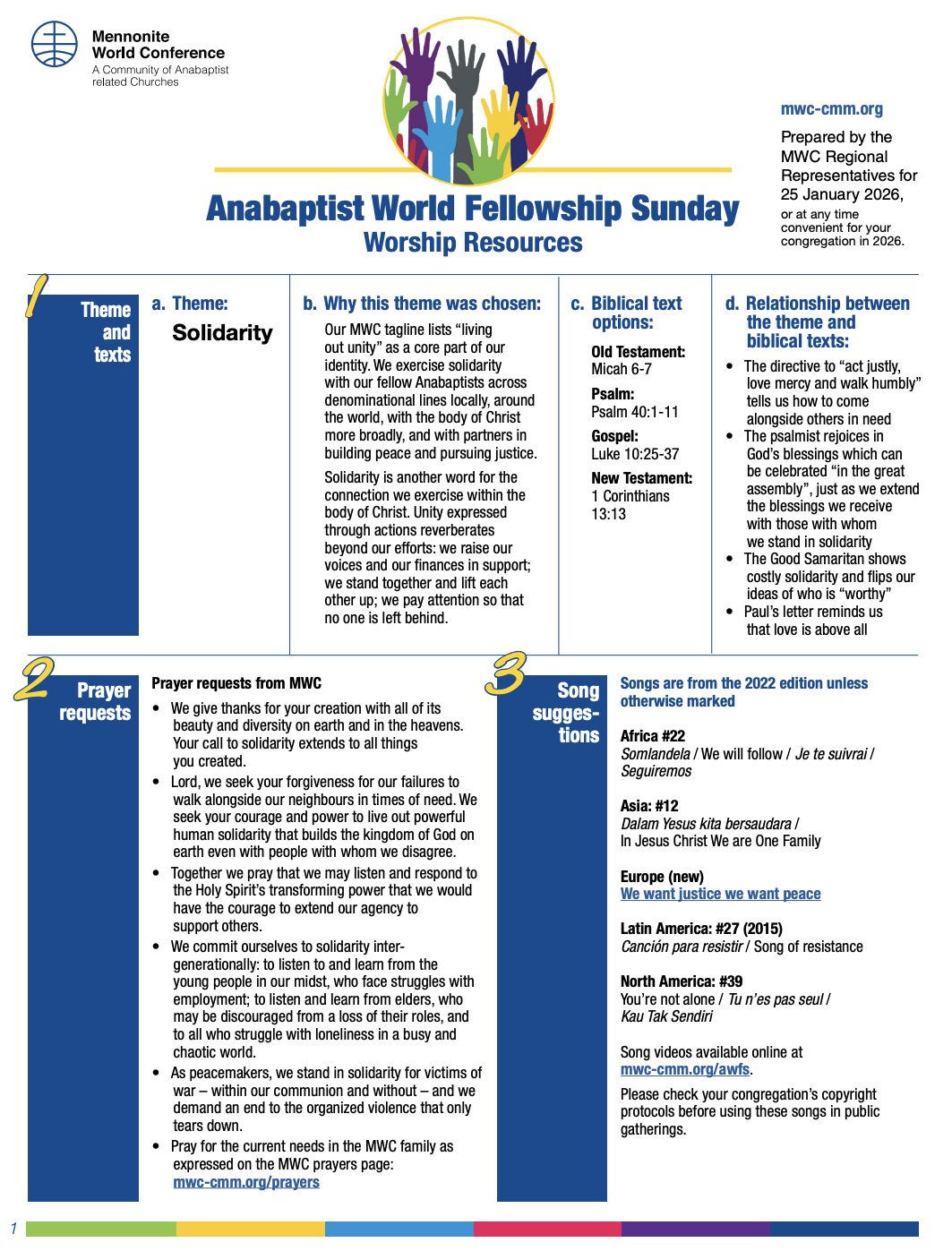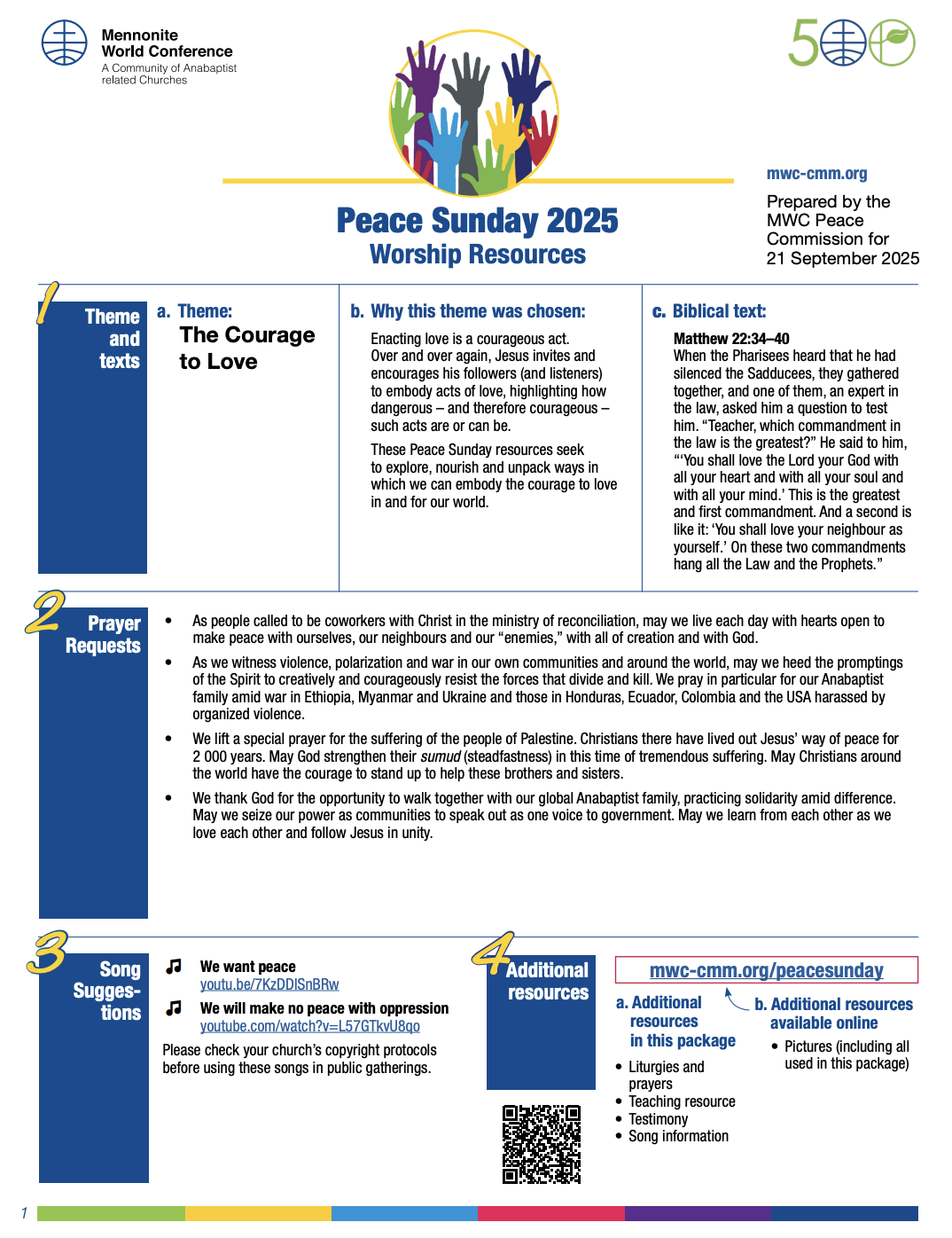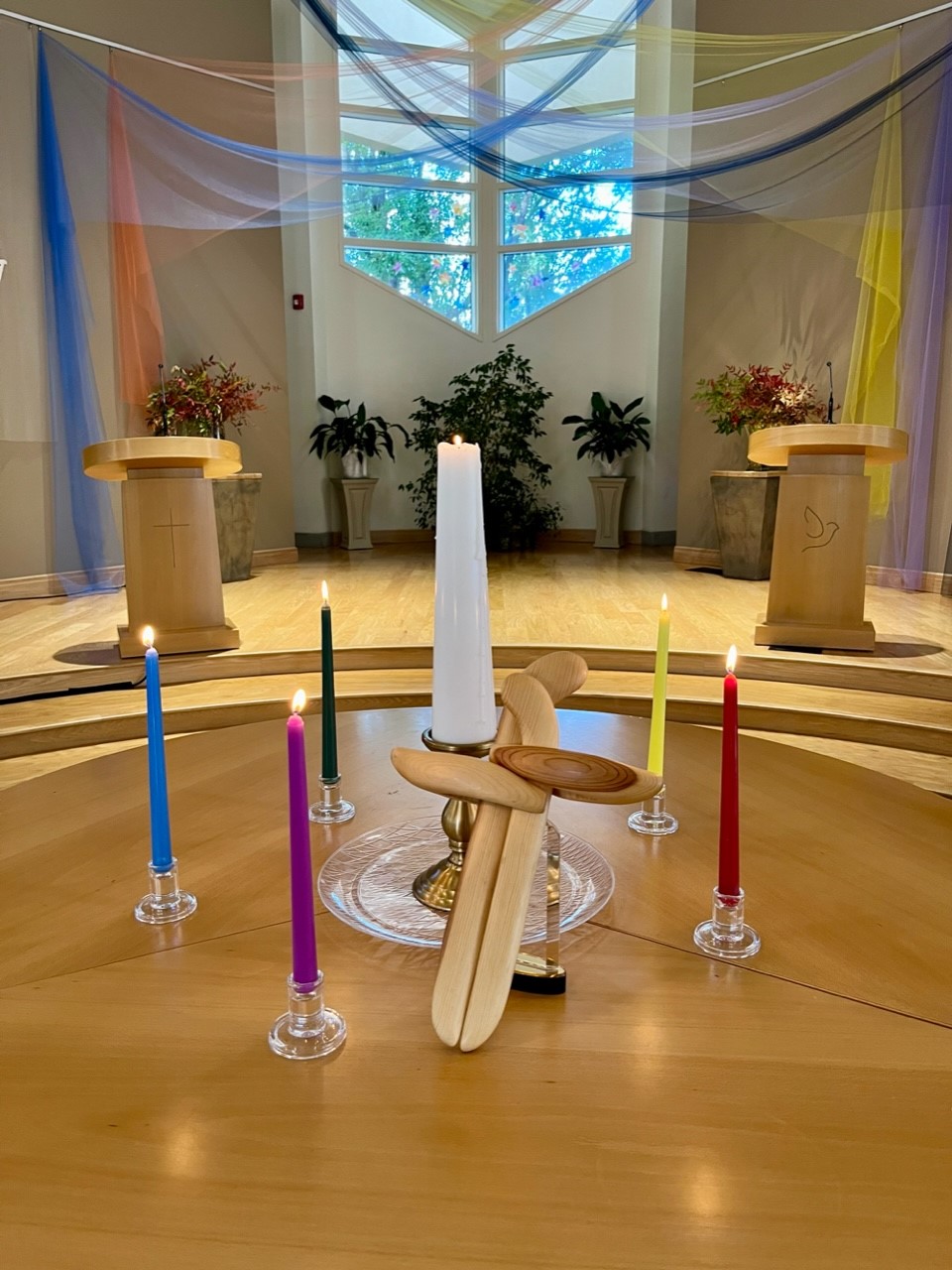-
Courier 2025 / 40.2-3
This issue of Courier is a taste of the 500th anniversary Inspired by Zwingli’s famous invocation to “do something courageous!”, MWC gave the theme “The Courage to Love” to our 500th anniversary year. We marked it with a registration-free event in the streets of Zurich, Switzerland, on Ascension Day, 29 May 2025. It’s also the…
-
Anabaptist World Fellowship Sunday 2026
Theme Solidarity Why this theme was chosen Our MWC tagline lists “living out unity” as a core part of our identity. We exercise solidarity with our fellow Anabaptists across denominational lines locally, around the world, with the body of Christ more broadly, and with partners in building peace and pursuing justice. Solidarity is another word…
-
A weekend of prayer and action against hunger 2025
Liturgy Guide and Resources for the Weekend of Prayer and Action Against Hunger 17-19 October 2025. For this Weekend of Prayer and Action Against Hunger, Christians from all around the world will gather for prayer and worship around the theme of global hunger and food justice. We offer this guide to support worship planners to…
-
Peace Sunday 2025 – worship resource
Theme The Courage to Love Why this theme was chosen Enacting love is a courageous act.Over and over again, Jesus invites and encourages his followers (and listeners) to embody acts of love, highlighting how dangerous – and therefore courageous – such acts are or can be.These Peace Sunday resources seek to explore, nourish and unpack…
-
The Courage to Love: Anabaptism@500 event video
On 29 May 2025, Mennonite World Conference (MWC) welcomed guests from around the world to The Courage to Love: Anabaptism@500. The day-long celebration commemorated the birth of the Anabaptist movement in Zurich, Switzerland. Following workshops, concerts, a panel discussion and self-guided historical walking tours, participants gathered for a worship service with ecumenical participation at the…
-
A weekend of prayer and action against hunger 2024
Liturgy Guide and Resources for the Weekend of Prayer and Action Against Hunger October 11-13, 2024 For this Weekend of Prayer and Action Against Hunger, Christians from all around the world will gather for prayer and worship around the theme of global hunger and food justice. We offer this guide to support worship planners to…
-
Liturgies and symbols for gathering and benediction
Anabaptist World Fellowship Sunday 2025 On a table at the front, place five candles of different colours for each continent on top of a map of the world (or beside a globe) along with a white candle as the Christ candle in the middle. At the start of the worship service, name each continent as…
-
Psalm 133
Introduction Do you remember any specific smell? Our sense of smell is one of the most interesting senses we have. Smell can bring pleasant memories of a meal you loved as a child, and unpleasant odours can elicit disgust. Church unity is like your sense of smell: it fills you with hope and strength when…
-
YABs Fellowship Week 2024 worship resource
Prepared by the YABs Committee for 16-23 June 2024 Theme: Mosaic: We are God’s handiwork Why this theme was chosen: This theme highlights our part in God’s greater purpose. Like pieces of tile, alone, we cannot see our value. Sometimes, we may think we are insignificant, but when God puts us together with the right…
-
A weekend of prayer and action against hunger 2023
Liturgy: Sharing food with the Hungry Ð Isaiah 58: 6-12 Conflict; an uneven global economic recovery from the COVID-19 pandemic; the effects of climate change; high inflation; as well as the rising cost of food, fuel, and fertiliser are driving a polycrisis that is pushing tens of millions of girls, boys, and their families into…
